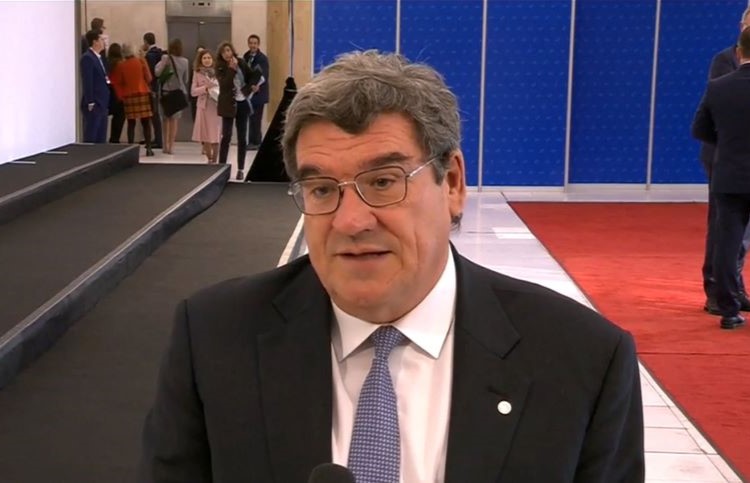The Diplomat
The Minister of Inclusion, Social Security and Migration, José Luis Escrivá, assured his EU counterparts yesterday that 13,000 Ukrainians displaced to Spain because of the war are currently affiliated to the Social Security and in employment.
Escrivá participated yesterday in the informal meeting of the ministers of Employment, Social Policy, Health and Consumer Affairs (EPSCO) of the European Union (EU), which was held in Prague and which was dedicated to the integration of Ukrainian refugees in the labor market of the member countries, especially women, who are the majority among the people who have been forced to leave Ukraine.
Escrivá assured during his speech that Spain is the fifth country in the EU that has granted more Temporary Protections -which authorize to reside and work- to Ukrainians, a total of 146,000, and highlighted the role of the Reception, Attention and Referral Centers (CREADE) set up since the beginning of the crisis in Pozuelo de Alarcón, Barcelona, Málaga and Alicante, where more than 110,000 people have been attended and 78,000 have been documented.
These centers, according to the minister, have played a relevant role in the social and labor incorporation of the displaced Ukrainians through the provision of information and through the presence in them of different institutions, among them the CEOE foundation. The focus on the schooling of the Ukrainian minors has been another fundamental element in promoting the rapid social integration of the refugees.
As a result, the Minister explained that 13,000 people displaced by the war in Ukraine are currently affiliated to the Social Security and registered in Spain, and that since the beginning of the war it is estimated that one in five of the Ukrainians who have received Temporary Protection and who are registered in Spain have had some kind of employment.
He also assured that one out of every seven displaced Ukrainians who work do so in highly qualified sectors, “in professions, among others, in the health, educational, scientific and artistic sectors, and eight out of every ten of those employed in these qualified sectors are women”.
According to the surveys carried out among those affected, language continues to be one of the main barriers that displaced persons identify for their incorporation into the labor market. For this reason, Escrivá assured that measures will continue to be taken to further facilitate their labor integration, with more language courses and progress in the homologation of degrees together with the Ministries of Universities and Education.






